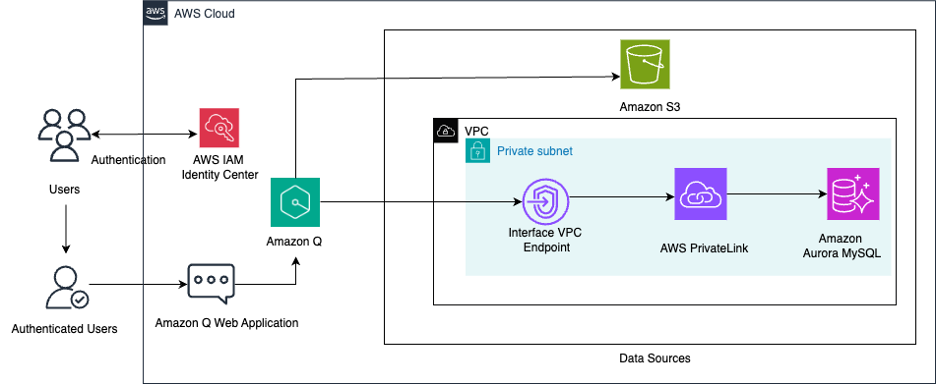A Tech Innovator in Trouble
The founder of a prominent AI chatbot company, known for its ambitious claims of revolutionizing education, has been charged with fraud. Authorities allege the company mismanaged millions of dollars and misled stakeholders about the true capabilities of its AI-driven educational tools. The case has sparked a public debate about the unchecked growth of artificial intelligence and its consequences in sensitive sectors such as education.
Smith-Griffin, 33, is the founder and former CEO of AllHere, a Boston company that developed “Ed,” an AI tool aimed at transforming education for students and improving communication between the L.A. Unified School District and its families.
The controversy centers around the company’s flagship AI-powered chatbot, which promised to address challenges in modern classrooms by offering personalized learning experiences for students. Despite its widespread adoption in schools across the United States, investigators revealed discrepancies in the company’s financial dealings and questioned the accuracy of its AI outputs.
What Are the Fraud Allegations?
Reports from the district attorney’s office detail serious allegations against the founder. The charges include financial fraud, misrepresentation of AI capabilities, and unethical business practices. Prosecutors allege that the founder fabricated financial statements to secure funding from investors while underreporting the company’s liabilities.
Investigators also claim that the AI chatbot’s performance was exaggerated in official reports. According to researchers, the chatbot failed to deliver on its promises of improving learning outcomes significantly. Some schools that adopted the technology expressed dissatisfaction, stating that it failed to understand complex queries from students and often provided generic, unhelpful responses.
The Impact on Schools and Students
The fraud charges have left many educators and school districts reeling. The chatbot was marketed as an innovative solution for schools struggling with teacher shortages and large class sizes. It aimed to assist educators by automating repetitive tasks and providing customized lessons based on a student’s learning style.
Teachers who implemented the chatbot in their classrooms are now questioning its reliability. Some reported that the technology fell short of promised benchmarks, forcing them to spend additional time correcting the AI’s mistakes. Students, especially those in underserved communities, were thought to be among the technology’s prime beneficiaries, but it appears the tool may have underserved them as well.
Groups advocating for ethical tech practices have criticized how the technology was deployed, emphasizing the need for greater transparency when integrating AI into education. Many are calling for a reassessment of how schools vet new technology for use in classrooms.
Also Read: China is using AI in classrooms
How Investors Were Misled
Financial fraud forms another major pillar of the case. Investors were allegedly provided with falsified performance metrics for the AI software. These fabricated reports painted the company as a pioneer in EdTech, capable of scaling operations globally while achieving groundbreaking results.
The elevated numbers allowed the company to secure millions of dollars in venture capital funding. Prosecutors argue that investor money was not used as intended. Significant sums are believed to have been diverted to cover personal expenses unrelated to the company’s products or research.
This misuse of funds has led to growing skepticism in the tech investment community, especially for startups competing in the AI space. Experts suggest that the case could slow investments in educational technology startups as venture capitalists now take a more cautious approach.
Also Read: The Role Of Artificial Intelligence in Boosting Automation
Concerns About Oversight in AI Development
This case highlights glaring issues with oversight in the rapidly evolving field of artificial intelligence. Many experts argue that government regulations and industry standards have not kept pace with technological advancements. Without defined guidelines, companies can overpromise their technology’s capabilities without accountability.
A key concern is the lack of third-party auditing for AI systems deployed in high-stakes environments like education. Critics say companies operate in a “black box,” making it difficult for schools, regulators, and the public to verify whether claims about AI performance match reality.
The legal case has brought attention to the risks of integrating AI tools into critical industries like healthcare, education, and law enforcement without proper safeguards. AI technology, in the absence of adequate checks and balances, has the potential to perpetuate harm on a large scale.
Also Read: How is AI Being Used in Education
The Ripple Effect on the EdTech Industry
The fraud charges have sent shockwaves through the education technology sector, an industry valued at over $400 billion globally. This case underscores the risks of blindly adopting AI technologies in classrooms, especially when these tools are backed by questionable claims of effectiveness.
Startups and established players alike could face heightened scrutiny, with schools and regulators demanding clear evidence of efficacy before approving new technologies. Some companies are already taking preemptive action, offering third-party audits to prove the reliability and transparency of their software.
On a broader level, experts are asking policymakers to implement stricter rules for EdTech companies. These regulations could include mandatory disclosures about how AI algorithms are trained, regular audits, and public trials of tools before widespread implementation.
Also Read: How Smart Cities Can Be Built and Maintained Sustainably
Legal Ramifications and Next Steps
The founder of the AI chatbot company now faces significant legal challenges. The charges could result in heavy fines, restitution payments to defrauded investors, and possibly jail time. The trial is expected to set a precedent for how cases of AI-related fraud will be prosecuted moving forward.
Legal analysts suggest the outcome of this case could lead to stricter penalties for AI companies failing to ensure honesty and transparency in their operations. For the EdTech community, the trial represents a turning point, one that could redefine ethical practices in the industry.
Similarly, stakeholders in education are seizing the opportunity to push for a larger conversation about the role of AI in classrooms. Teachers, parents, and education organizations are advocating for a cautious, evidence-driven approach to the adoption of new technologies.
Also Read: Role of artificial intelligence in payment technology.
The Big Picture: Lessons Learned
This case serves as a cautionary tale for both tech innovators and consumers. While AI offers immense promise, the legal action against the chatbot founder reminds everyone of the importance of accountability in emerging technologies. As more industries explore AI, transparency and ethical standards must play a central role in development and deployment.
For schools and educators, the case underscores the importance of scrutinizing new tools before integrating them into classrooms. While technology can enhance education, it is not a silver bullet, and its implementation must prioritize students’ best interests.
As the trial progresses, it will be closely watched by investors, educators, policymakers, and technologists alike. The outcome is likely to shape the future of AI regulations and serve as a roadmap for how technology companies must operate in an increasingly AI-driven world.
References
Agrawal, Ajay, Joshua Gans, and Avi Goldfarb. Prediction Machines: The Simple Economics of Artificial Intelligence. Harvard Business Review Press, 2018.
Siegel, Eric. Predictive Analytics: The Power to Predict Who Will Click, Buy, Lie, or Die. Wiley, 2016.
Yao, Mariya, Adelyn Zhou, and Marlene Jia. Applied Artificial Intelligence: A Handbook for Business Leaders. Topbots, 2018.
Murphy, Kevin P. Machine Learning: A Probabilistic Perspective. MIT Press, 2012.
Mitchell, Tom M. Machine Learning. McGraw-Hill, 1997.











